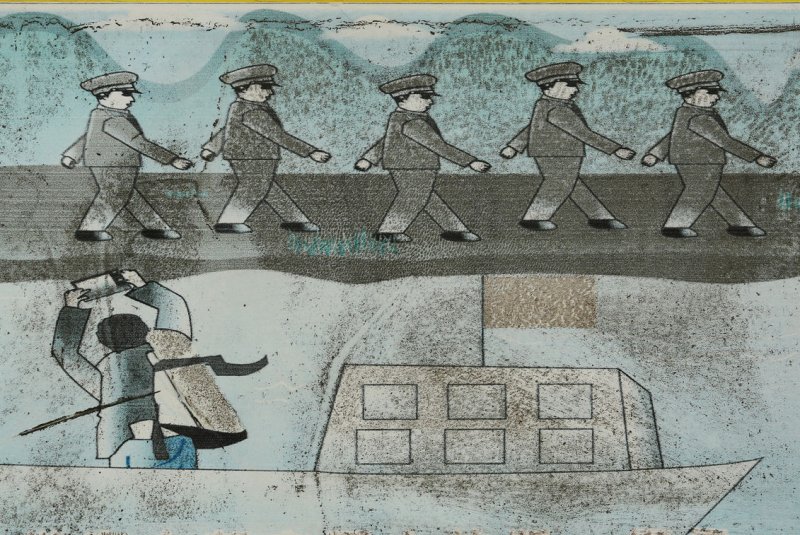Chinese public service notices regarding North Korea are posted next to a military outpost on the Yalu River across from North Korea in Dandong, China's largest border city with North Korea. North Korea severely punishes its citizens if they are caught praying or reading the Bible, according to a report from the U.S. State Department. Photo by Stephen Shaver/UPI |
License Photo
WASHINGTON, Aug. 10 (UPI) -- North Korea was designated a "Country of Particular Concern" for the fifteenth year in a row for gross violations of religious freedoms.
In its annual International Religious Freedom Report for 2015 issued on Wednesday the U.S. State Department noted Pyongyang maintains an "appearance of tolerance" but suppresses internally all nonstate-sanctioned religious activities.
"Religious freedom does not exist in North Korea despite the constitutional guarantee for the freedom of religion," the report read.
North Koreans who practice their religion outside the parameters set forth by the Kim Jong Un regime are penalized and practitioners must keep their activities confidential.
"Defector accounts indicated religious practitioners often concealed their activities from neighbors, coworkers, and other members of society for fear their activities would be reported to the authorities," the report read.
But North Korea has previously denied restricting the religious practices of the population.
In a 2002 report to the United Nations Human Rights Committee, the government reported 12,000 Protestants, 10,000 Buddhists, and 800 Roman Catholics resided in the country.
Cheondoism, a modern religious movement that began in the 19th century, has about 15,000 followers, according to North Korea.
But the ultimate authority of the state ideology of Juche remains an "important ideological underpinning of the government and the cult of personalities of the late Kim Il Sung, Kim Jong Il and current leader Kim Jong Un," the U.S. State Department report read.
The practice of religion that was perceived to challenge the state resulted in "severe punishment," according to the report.
Penalties are in place for activities that include praying, singing hymns and reading the Bible, international nongovernmental organizations have said.
Some of North Korea's 80,000 to 120,000 political prisoners are being imprisoned for religious reasons, according to the State Department.















